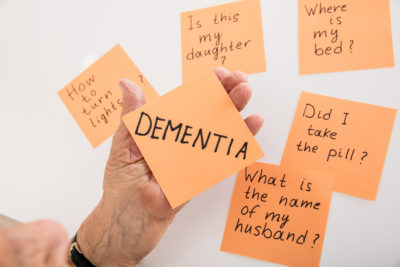No longer is a condition like dementia considered one of those “things people just have to live with.” To a certain extent, those suffering from the condition don’t have a lot of options and there is no cure for this degenerative condition. However, thanks to advances in neurological science, there’s an increasing availability of therapeutic services for dementia-related symptoms and mental health disorders. Dementia can be difficult to manage, but it’s not something that you have to handle on your own.
The rise of dementia
Dementia is a degenerative condition, as mentioned, and according to studies, it’s on the rise. A 2010 study from the National Institutes of Health highlights the expected prevalence of dementia to double every two decades (20 years), which will bring the total number of people affected by this condition close to 81 million by 2040.
While that might sound scary, especially to those who are getting closer to that 60-85 age range, it’s not as grim as it sounds. As a matter of fact, by that time, there may be even more scientific advances and research to assist with treating (or even preventing) this condition. As it stands, prevention isn’t really known to be possible. However, neurology services can be a great solution to help treat and manage the various dementia-related symptoms, conditions, and so forth.
Common symptoms of dementia

Those who are suffering from this condition will typically start to notice confusion, memory issues, or changes in their communication or learning abilities. Some people lose their language abilities, coordination, and ability to handle complex tasks.
Dementia is essentially the body’s response to those aforementioned nerves being damaged or the pathways interrupted. Thus, it will present slightly differently in each person. However, if you notice that you or a loved one are suddenly struggling to remember things, stay on task, or even getting easily disoriented, it may be time to talk to someone about dementia care.
How Dementia is Confirmed
There are a number of cognitive and neuropsychological exams and tests used to evaluate a person’s ability to think and retain information, as well as their problem-solving abilities, balance and coordination, visual and audial perception, and more. For some, blood tests can detect problems related to brain function like an underactive thyroid or even a B-12 deficiency. CT and MRI scans can look for bleeding, stroke signs, tumors, and hydrocephalus, which can all contribute, as well.
Finally, there are PET scans to actually check the brain activity patterns and see if certain proteins or elements that point to dementia and Alzheimer’s have been left in the brain. For the mental health issues that often come with dementia, psychiatric care and counseling can serve to stave off depression, anxiety, and other issues that may be exacerbating the condition.
The bottom line is that while cases are on the rise, it’s not something to fear. Treatment options are also growing and as more is learned about this condition, there will be even more solutions to alleviate symptoms or perhaps even prevent the condition altogether.



